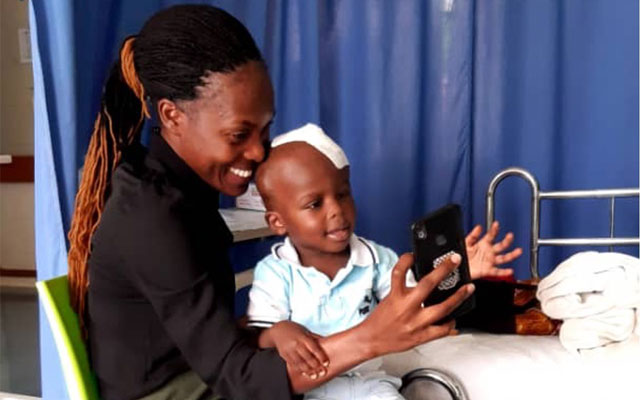Sustainable care is made possible by many factors, one of which is training. Effective diagnosis is needed so that people with bleeding disorders (PWBDs) can get the care they need. The World Federation of Hemophilia (WFH) holds regular training sessions through different programs—including the WFH Humanitarian Aid Program—to help healthcare practitioners recognize the signs of a bleeding disorder as early as possible in the life of a PWBD.
In the case of Ethan, a three-year-old boy in Uganda, early diagnosis probably saved him from a life of disability—or even death. He was born via a vacuum-assisted delivery, and immediately developed symptoms that were consistent with hemophilia. The team at the birthing facility—which benefited from a WFH Humanitarian Aid Program webinar titled, “Front line doctors and second line treaters”—recognized the signs and contacted the Haemophilia Foundation of Uganda (HFU). A formal diagnosis was soon made, and Ethan began receiving donated factor provided by the WFH Humanitarian Aid Program. He is now on prophylactic treatment and is leading a normal life. While fast treatment is common in cases where a sibling has already been diagnosed with a bleeding disorder, it’s much rarer in the case of a first child. Ethan’s positive experience shows the difference that training can have for a young PWBD.
Over 10 million IUs have been donated to Uganda through the WFH Humanitarian Aid Program since 2015. Last year, nearly 1.5 million IUs of factor and over 34,000 mg of non-factor replacement therapy were donated. To find out more about the WFH Humanitarian Program, please click here.
About the WFH Humanitarian Aid Program
The WFH Humanitarian Aid Program improves the lack of access to care and treatment by providing much-needed support for people with inherited bleeding disorders in developing countries. By providing patients with a more predictable and sustainable flow of humanitarian aid donations, the WFH Humanitarian Aid Program makes it possible for patients to receive consistent and reliable access to treatment and care. None of this would be possible without the generous support of Sanofi Genzyme and Sobi, our Founding Visionary Contributors; Bayer and Roche, our Visionary Contributors; Grifols, our Leadership Contributor; and our Contributors, CSL Behring and Takeda. To learn more about the WFH Humanitarian Aid Program, visit www.treatmentforall.org.













